RI's new nursing school wants to graduate `healers,' ease job stress, reduce national exodus
Annette Muchiri was only supposed to live for 10 minutes.
Born at 2 pounds, 4 ounces, she had a slim chance of leaving Women & Infants Hospital.
But instead of 10 minutes, Muchiri has lived for 18 years. Those first moments of her life will now guide the rest as she begins studying to become a nurse in a neonatal intensive care unit like the one that helped her survive.
"I define who I am by what I have gone through and by my story," Muchiri said. "I have always felt it was my purpose to give back to the NICU, the place that saved me, and that’s why I want to become a neonatal nurse. I want to help other babies who are in the vulnerable state that I was in to defy their odds."
Providence College wants to defy the odds, too. As a national nursing shortage drags on and burnout pushes health care workers to exhaustion, the college has launched its first School of Nursing and Health Sciences. It's a roughly $80-million program that will put high-tech equipment at students' fingertips and expose them to real-life scenarios. It's also the first nursing program the state has green-lit in a decade.
Muchiri, an incoming freshman, will be among the nursing program's earliest classes.
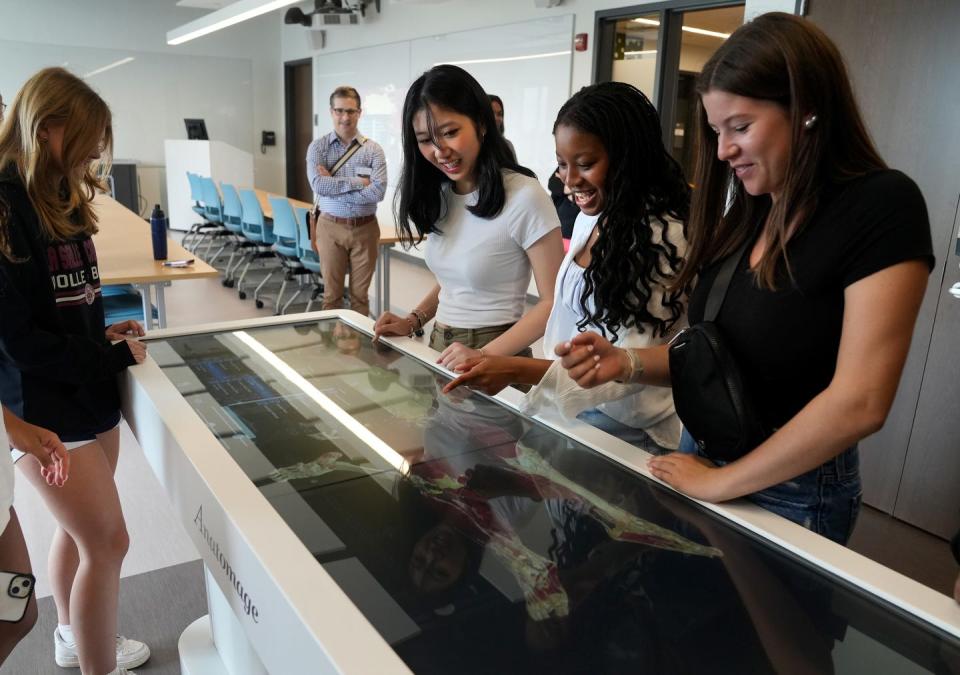
The idea emerged in 2021, when the Rev. Kenneth Sicard was inaugurated as the college's president after a year's delay because of COVID-19. Sicard said he saw the need for good nurses during the pandemic and felt it was a piece missing from the school's offerings, particularly as a Catholic institution.
And it won't be a run-of-the-mill medical education, he said. The college is looking to train what Sicard is calling "healers" who focus on the "person – body, mind and spirit."
"It’s not enough to dispense medicine, he said. "You really need to love and honor the patients you serve."
Hospitals 'just can't hire enough nurses' as shortage continues
Gearing up for a September 2023 start date, the school will welcome about 50 students in nursing and 50 students in health sciences.
But Providence College has a challenge on its hands: How will it make students want to stay in a field where most have experienced burnout?
A couple of numbers illustrate the situation: A 2020 study from the American Nurses Association showed nearly two-thirds of nurses face burnout. Even now, the dilemma remains. A 2023 McKinsey analysis found that almost one-third of nurses could leave their jobs in direct patient care.
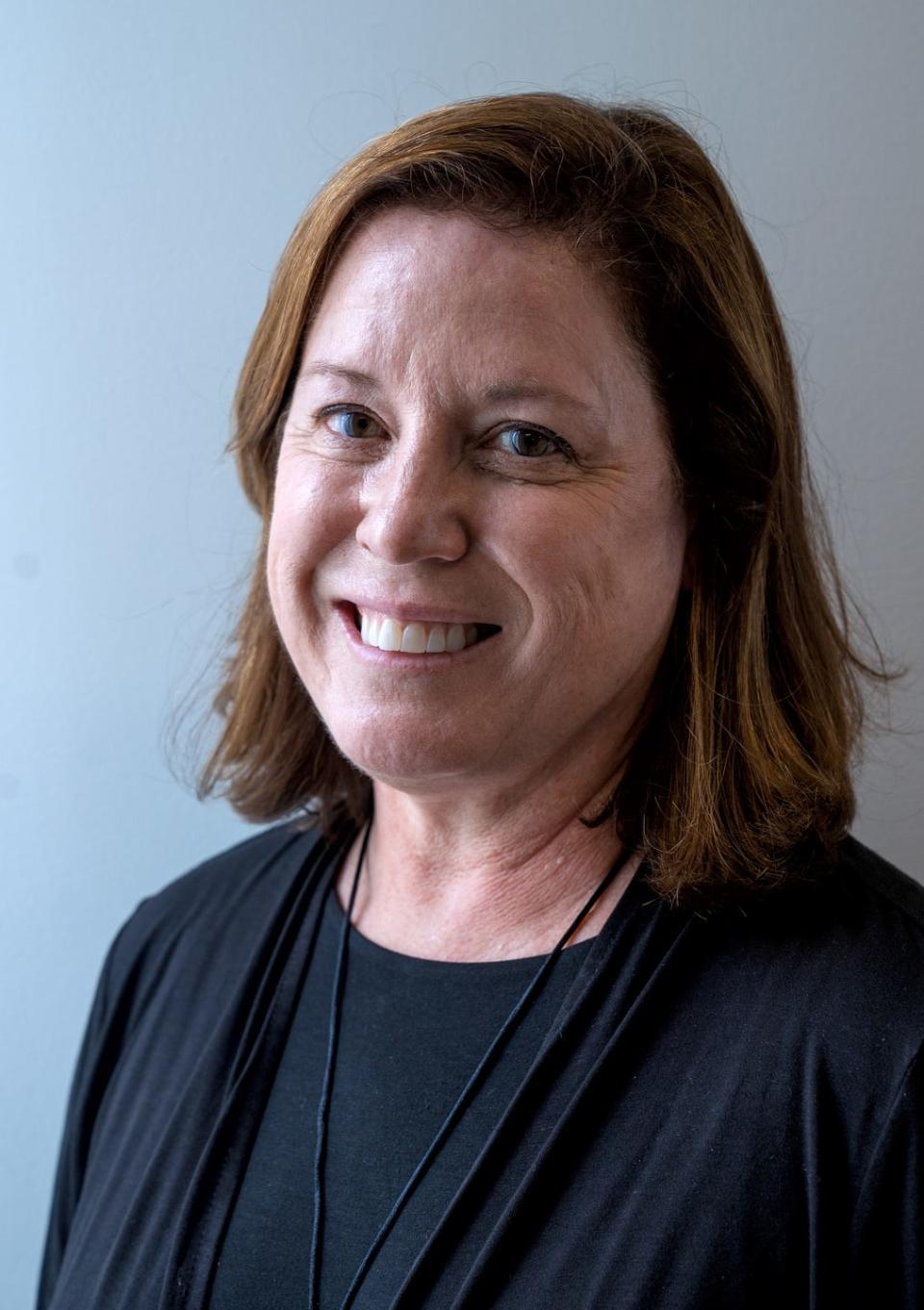
Nancy Meedzan, who chairs Providence College's new nursing department, knows exactly what the stress is like, having spent 20 years as a nurse in Rhode Island and elsewhere.
Hospitals "just can't hire enough nurses, and so they're having a huge reliance on travel nurses, which is really depleting their budgets," she said. "There's just the need to build back the culture. They've lost a lot of their experienced nurses through COVID. ... There's a little bit more violence towards health care workers."
Federal data shows that Meedzan is right. According to the U.S. Bureau of Labor Statistics, in 2018, well before the pandemic erupted, health care workers were five times as likely to encounter workplace violence than the average worker.
Here's how Providence College is preparing students for a tough job
In its nursing school, Providence College is incorporating a "well-being and resiliency" program. Think massage chairs, aromatherapy and soft music. On campus, the college has demolished an old dormitory to make space for the 100,000-square-foot building where it will move the nursing school in 2025. Aside from classrooms and labs, it may include special rooms for students to unwind.
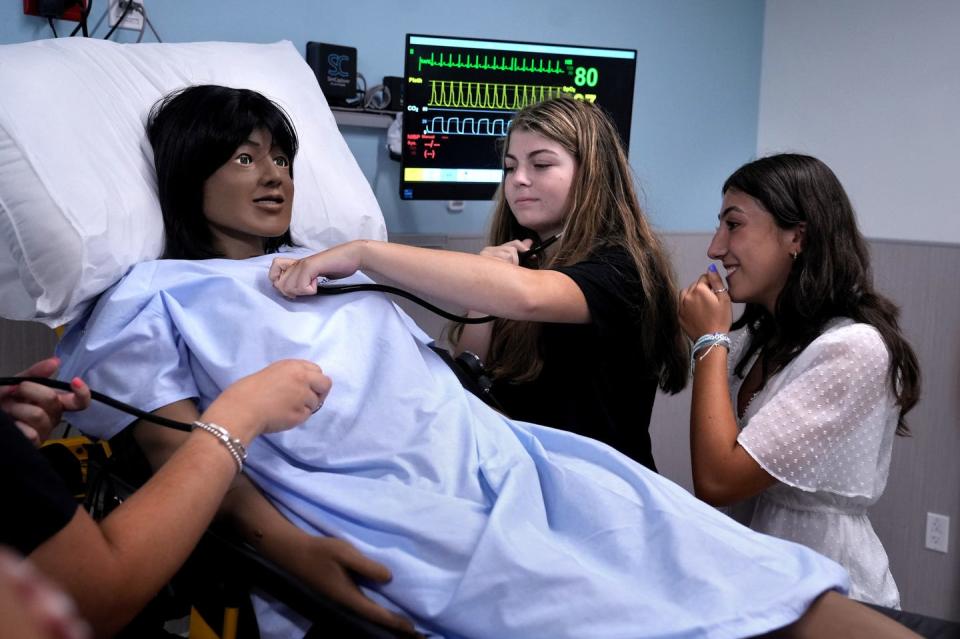
"I have one faculty [member] that starts each class with a mindful moment, and I have seen these kids come in for a test, and everyone just kind of takes a step back and can relax a little bit," Meedzan said. "So it's really important, and unfortunately, in times when we're in crisis ... those are the first things that we drop."
Those moments help to counter the real-life stress-inducing scenarios students will need to endure to get their degrees. They will include mock assessments of patients played by theater students. Nursing trainees will need to tend to their needs while keeping at bay distraught family members (who will also be aspiring actors in disguise).
When students aren't working on humans, they'll work with lifelike dummies through which professors can talk while standing in another room. Those dummies are so realistic that they have pulses and oxygen levels that can be monitored. At a glance, you might think they're alive.
Providence College's hefty investment also includes six virtual autopsy tables that allow students to digitally look through cadavers scanned into its system. Those tables, which may become the way of the future for students, go for $100,000 each, enough to buy three new SUVs.
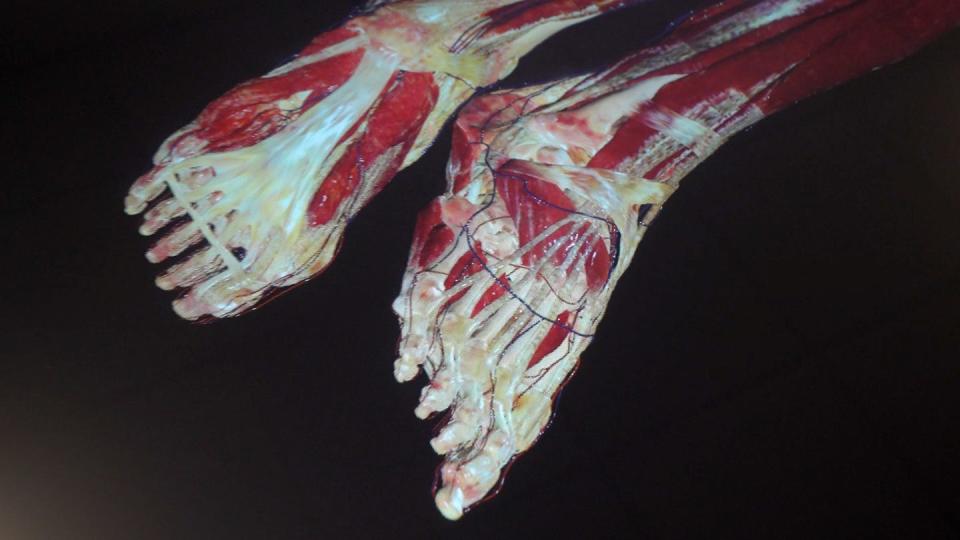
A mission to get nurses to stay in RI might mean free tuition
Once Providence College graduates its first batch of nurses, it's hoping they'll stay in state to help address staffing shortages here.
Consider this figure: A jarring analysis from the National Center for Health Workforce Analysis projects a nationwide shortage of 78,610 full-time registered nurses by 2025, and an ongoing shortage of 63,720 by 2030.
While it's tough to predict exactly what Rhode Island's future holds, Meedzan said she's heard of hundreds of vacant health care positions in area hospitals. To fill those gaps, Providence College is considering a program that would waive tuition for students who commit to working at an in-state hospital for a set period of time.
"It's a proverbial win-win," said Kyle McInnis, inaugural dean of the nursing school. "We can promise students scholarships and a job, and the employer gets a pipeline of talented new students."
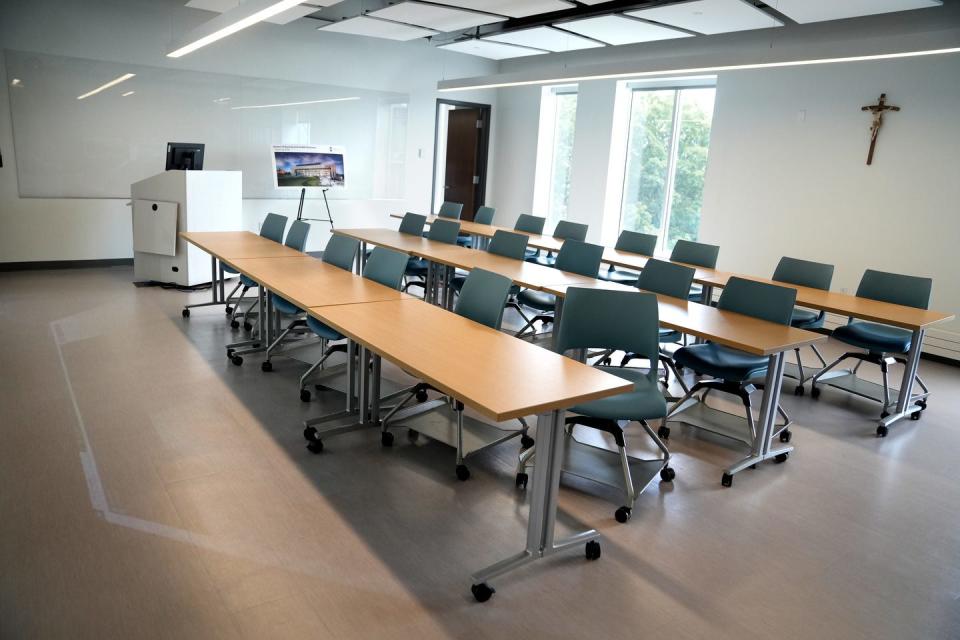
Nursing program will still make room for liberal arts
While Providence College's nursing program has already generated substantial interest, it faces competition from a long list of established programs at other schools. A quick scan of U.S. News & World Report rankings shows numerous top schools from Pennsylvania to Georgia to Michigan and more. But McInnis is convinced Providence College's nursing program has something others don't: a steadfast commitment to liberal arts.
"With the evolving nursing essentials or standards or even practice, those skills of problem solving, critical thinking – all of those types of qualities ... makes a better nurse, a better health care professional," McInnis said. "I think in some places that even have a core curriculum, which is most, it's a box to check before you get to the fun stuff. We turn that paradigm."
Clarification: This article has been updated to clarify that the nursing program will begin classes this year. It has not yet started holding courses.
This article originally appeared on The Providence Journal: Providence College answers nursing shortage with $80-million program

